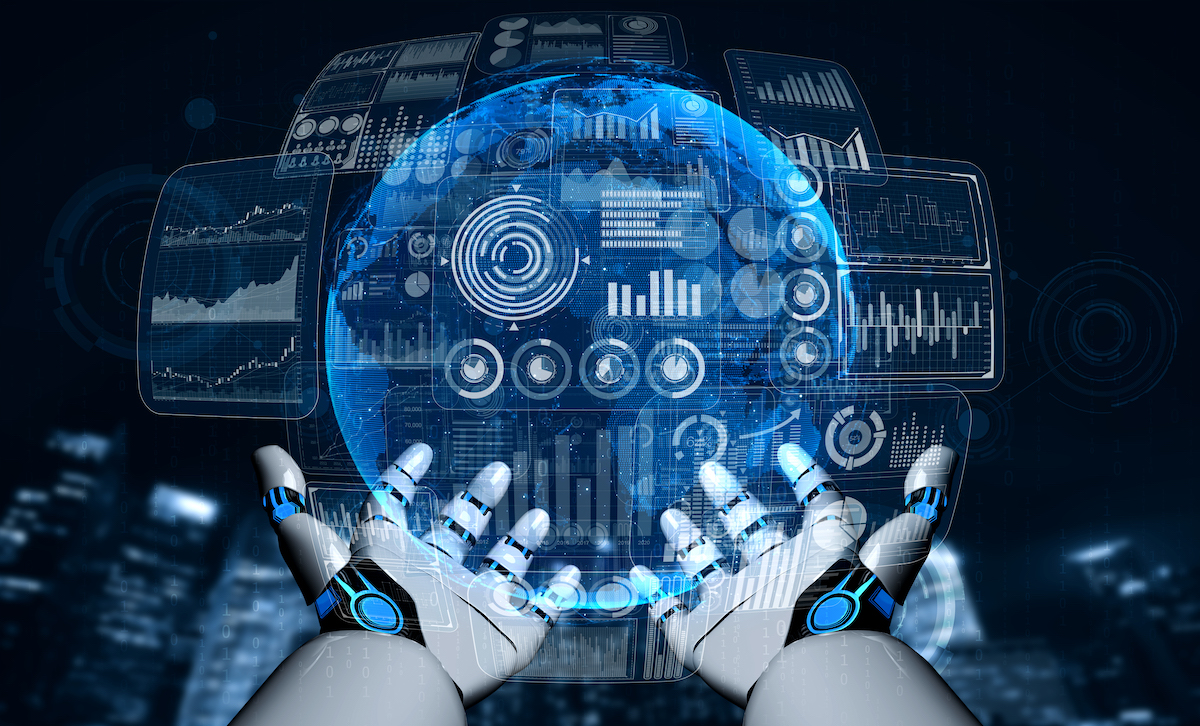The healthcare industry is experiencing a profound transformation driven by technological advancements, and Artificial Intelligence (AI) stands at the forefront of this revolution. AI integration in healthcare apps is changing the way medical professionals diagnose, treat, and manage patients, while also enhancing patient engagement and overall quality of care. In this blog, we’ll delve into the reasons why AI integration is crucial for healthcare apps and explore how an AI app development company is shaping the future of healthcare delivery.
Precision Diagnostics through AI
One of the primary advantages of AI integration in healthcare apps is its ability to analyze vast amounts of medical data with unmatched precision. AI algorithms can process medical images, such as X-rays and MRI scans, to identify subtle patterns and anomalies that might escape the human eye. This AI-driven diagnostic capability not only improves accuracy but also expedites the diagnosis process, enabling timely intervention and treatment planning.
Personalized Treatment Plans
AI app development empowers healthcare apps to offer personalized treatment plans for patients. By analyzing a patient’s medical history, genetic data, and current health condition, AI algorithms can recommend tailored treatment options. This approach considers individual patient characteristics, optimizing treatment effectiveness and reducing the risk of adverse reactions.
Predictive Analytics for Early Intervention
AI’s predictive analytics capabilities are transformative in healthcare. AI-integrated apps analyze patient data to predict disease progression and potential health risks. This proactive approach allows medical professionals to intervene early, providing preventive care and reducing the burden of costly and invasive treatments down the line.
Drug Discovery and Development
AI is revolutionizing the drug discovery process, and its integration into healthcare apps can expedite this critical aspect of healthcare. AI algorithms analyze vast datasets to identify potential drug candidates, predict their efficacy, and even optimize their molecular structures. This accelerates drug development and brings novel treatments to patients faster.
Remote Patient Monitoring and Telehealth
AI in healthcare apps enable remote patient monitoring, particularly relevant in today’s telehealth-focused landscape. Wearable devices equipped with sensors collect real-time health data, which AI algorithms analyze to detect abnormalities or trends. This information can be shared with healthcare providers, allowing for timely interventions and reducing the need for in-person visits.
Natural Language Processing (NLP) for Data Interpretation
NLP, a subset of AI, empowers healthcare apps to understand and interpret human language. This capability enhances patient interactions by allowing users to communicate health concerns, symptoms, and questions naturally. Healthcare apps integrated with NLP can provide relevant information, schedule appointments, and even offer virtual consultations, improving patient engagement.
Automation of Administrative Tasks
Healthcare involves complex administrative tasks that can burden medical professionals and administrators. AI-integrated apps streamline administrative processes such as appointment scheduling, billing, and medical record management. This automation frees up valuable time for healthcare providers, enabling them to focus on patient care.
Clinical Decision Support
AI-driven clinical decision support tools provide medical professionals with evidence-based recommendations and guidelines. These tools analyze patient data and medical literature to assist in diagnosing conditions, choosing treatment options, and avoiding potential errors. This integration enhances medical decision-making and reduces the risk of misdiagnosis.
Managing Big Data in Healthcare
The healthcare industry generates an enormous amount of data, from patient records to research studies. AI app development equips healthcare apps to manage and analyze this big data efficiently. AI algorithms can identify trends, patterns, and correlations in large datasets, enabling medical professionals to make informed decisions based on comprehensive insights.
Continuous Learning and Improvement
AI app development is characterized by its ability to learn and improve over time. AI-integrated healthcare apps continuously refine their algorithms based on real-world outcomes and new data. This ensures that the apps remain accurate, up-to-date, and aligned with the latest medical advancements.
Conclusion
The integration of AI in healthcare apps is not just a technological trend; it’s a transformative force that’s shaping the future of healthcare delivery. From precise diagnostics and personalized treatment plans to predictive analytics and drug discovery, AI-driven apps are enhancing patient care, improving medical decision-making, and revolutionizing the healthcare industry as a whole. As AI app development continues to evolve, the synergy between AI and healthcare apps will continue to advance medical practices, optimize patient outcomes, and pave the way for a more efficient, effective, and patient-centric healthcare system.





